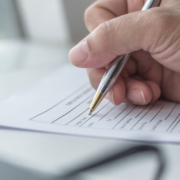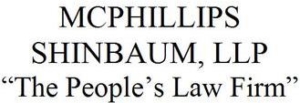The Importance of Keeping Accurate Records in a Personal Injury Case
Behind every successful personal injury claim, there’s a massive pile of documentation. Insurance companies are sneaky, and they will not pay for an injury unless they are forced into a corner. In-depth record keeping can strengthen your injury claim in a variety of ways, and working with an experienced personal injury attorney can help you know exactly which types of records to maintain.
The team at McPhillips Shinbaum is here to help you fight for justice after a personal injury. Find out how we can help you by calling us at 334-262-1911.
How Your Records Support Your Personal Injury Claim
Accurate records are the foundation of any personal injury claim. Without them, a claim is flimsy, impossible to prove, and unlikely to be successful. To start, clear records help establish liability. Once you can prove who is liable for an injury, you put pressure on the insurance company to account for their client’s negligence.
Records can also prove causation. It’s important not just to prove your injuries, but to show what caused them. Crash scene documentation and medical records create a strong link between an accident and your subsequent injuries.
Thorough records go a long way in quantifying your economic and non-economic damages. Without proof of what you’ve lost, the insurance company will always take the most optimistic outlook they can. They’ll assume your injuries are minor or nonexistent and that you did not miss any time at work. When you can prove your losses, they can’t hold onto those lies any longer.
All in all, your records can put your attorney in the best place possible to begin preparing for negotiations or getting ready for court.
Documenting the Incident
Documenting the incident is a vital part of your records. Without proper documentation of the accident or incident that led to your injuries, your claim is on shaky ground. Photographs and video footage are excellent for proving what happened and how things went wrong. You can also support your photographic evidence with eyewitness statements, your own written statements, and physical evidence.
Physical evidence may include broken or damaged items, clothing items, and debris. If your injury was caused by a car accident, don’t forget to get a copy of the police report for your records. If you had a slip and fall incident, get an injury report from the place you fell.
Medical Records
Remember, proving the extent of your injuries is crucial if you want to get fair and full compensation. Your initial medical assessment shows how quickly you sought treatment after your injury and what the doctor’s initial thoughts were. This type of documentation gives you a starting point for your recovery.
Other important medical documentation may show the treatments you’ve received, how much progress you have made over time, which diagnostic tests you’ve undergone, and any mental health treatment you’ve needed as a result of your injuries. As you start receiving bills, don’t forget to keep them as well. Medical expenses are often the biggest component of a personal injury claim.
Financial Records
Your medical bills are just part of the financial records you should keep after a personal injury. If you have to pay any copays, pay for parking, or otherwise spend your own money on your medical care, keep receipts. When you receive bills, make copies and save them for your claim.
Your income is likely to take a hit as you recover from your injury, so take some time to document the time you spend away from work. You may want to get written reports from supervisors if you are forced to go home early or if you take unpaid time off of work after running out of sick pay. If you must pay out-of-pocket to keep your insurance active in the interim, document that as well.
If you suffered any property damage during the accident, get repair and replacement estimates for each item damaged. This could be a sizable part of your claim.
Choose McPhillips Shinbaum for Your Personal Injury Claim—Contact Us Today
The sooner you reach out to McPhillips Shinbaum after an injury, the more quickly we can begin building your claim and advocating for you. Set up a time to talk now by calling us at 334-262-1911 or contacting us online.













